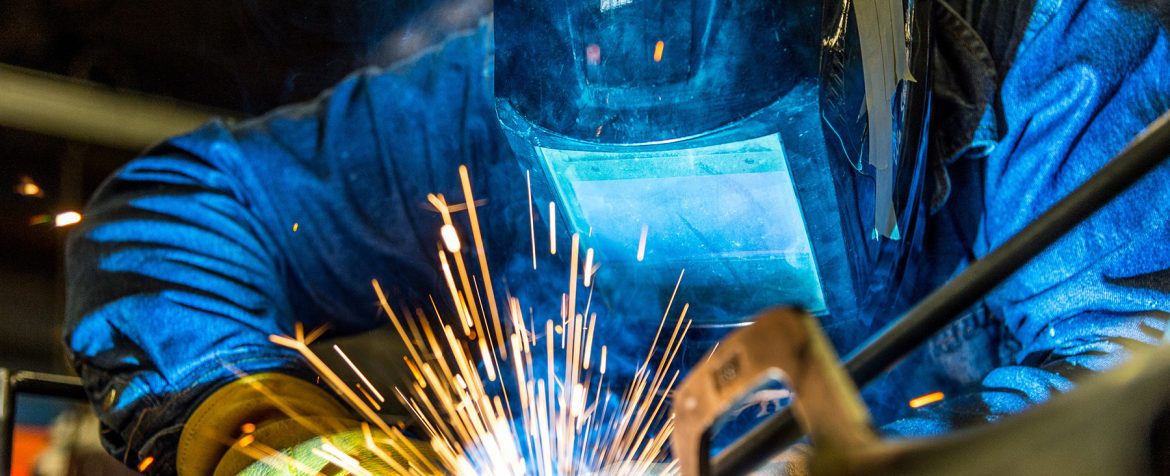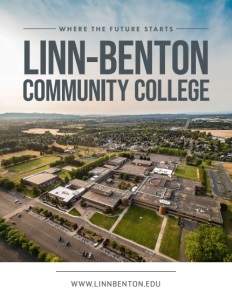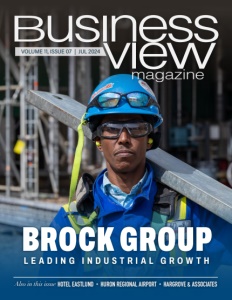Linn-Benton Community College
Where the future starts
Focused on high-wage/high-demand careers
Locally cherished Linn-Benton Community College (LBCC) is a two-year, public educational institution, located in Albany, Oregon, in the heart of the Willamette Valley. The college was established in 1966 after the voters of Linn and Benton Counties approved its creation by a three-to-one margin. After years of courses being taught in rented locations, its 104-acre campus, just south of Albany, was dedicated in 1974.
Today Linn-Benton Community College stands as a top-tier post-secondary institution offering programs that prepare students for what lies ahead. In addition to the main Albany Campus, Linn–Benton Community College has three extension centers: The Benton Center, and the Chinook Hall, located in Corvallis, Oregon; and the Lebanon Center in Lebanon. Total enrollment for a two-year associate degree at the main campus is about 5,000, with over three times that many students taking advantage of the school’s many offerings over the year.
Linn-Benton Community College offers 92 degrees and certificates, which include Certificates, Associate of Arts Oregon Transfer, Associate of Science, Associate of Arts, Associate of Applied Science and Business. Program areas include Agricultural Sciences, Applied Industrial Technology & Transportation, Arts & Humanities, Business, Education & Social Services, Health, Healthcare & Culinary, and Sciences, Engineering, and Math.
While LBCC provides education for all, it is particularly known for its strong programs in Career and Technical Education (CTE) and its high-skill classes in the construction trades and manufacturing technologies, such as welding and non-destructive testing. For those seeking a four-year bachelor’s Degree, LBCC has a partnership with Oregon State University, which accepts its transfer credits. Students can also be enrolled in their Degree Partnership Program (DPP) with OSU and actually be enrolled in both colleges.
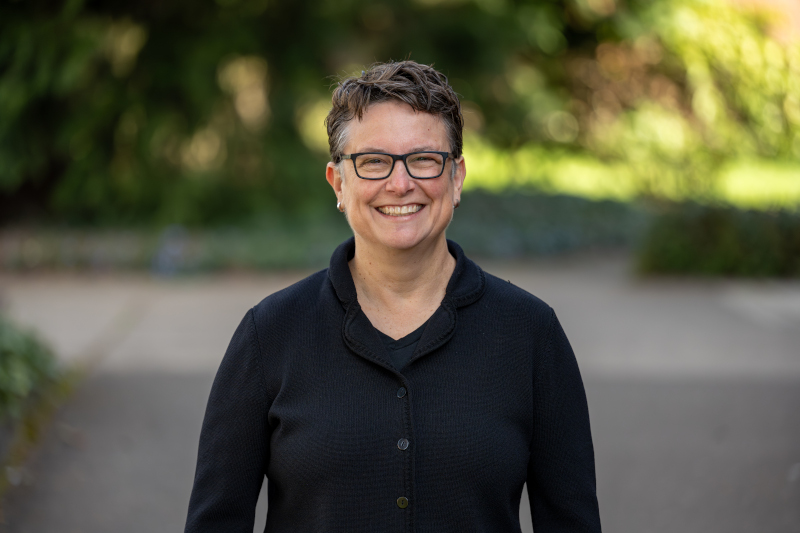
Lisa Avery
Matching students with job opportunities
The college also works as a conduit between the local school-age population and the industries in the area.
“We believe the college’s role in the community is to help with economic empowerment and getting students on a path to high-wage jobs,” explains LBCC’s President, Dr. Lisa Avery. “We are known for being responsive to the needs of industry in this part of Oregon, so we have a lot of programs supporting the local workforce. LBCC sees itself as integral in helping draw new businesses to our region and then helping with their talent pipeline so that the businesses can thrive. When there are new businesses in the process of relocating to the Albany area, we are part of that welcome mat. We have an all-hands-on-deck approach to partnership with our industry collaborators.”
From school to college to career
About 30 percent of seniors from local area high schools go directly to LBCC after graduation, and for some, what they learn there is life-changing. “I worked at that program years ago, and it opened a lot of different doors for me,” says Hans Randklev, owner of HR Mechanical Services, a local plumbing, pipe-fitting, and pipe-welding/fabrication business, who studied welding and fabrication technology at LBCC.
“I was a kid who didn’t like school; I flourished with my hands and not my brain. And I’m very fortunate to be where I am now. I think that if I didn’t have the opportunity to go to LBCC, I don’t know where I’d be today. My high school welding teacher helped me get a scholarship to go there. I want younger people to have the same opportunities that I did.”
Another former student, Marc Rose, is now the Department Co-chair of the school’s welding program. He believes that getting students to visit the campus is key in exposing them to the opportunities that exist in the area for trained tradespeople.
“Hans and I both went to the same high school and we had probably one of the best vocational programs, not only in the state, but across the nation,” he recounts “We were very fortunate to be exposed to several different vocational career paths, which students today aren’t as exposed to. So, getting these students out here, just so they can see what the possibilities are has been huge.”
Avery reports that LBCC even reaches out to middle-schoolers. “Previously, much of the outreach was high-school focused, and we think we need to get students’ attention and begin that empowerment in middle school,” she remarks.
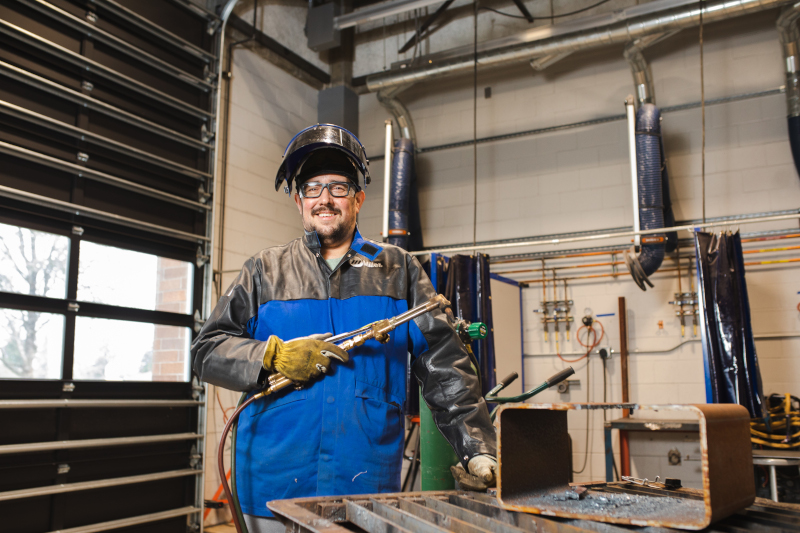
Marc Rose
“So we’ve reached younger and younger to try to help with that early career pathway.” “We bring middle-schoolers out on tours,” adds Rose. “In the past, we’ve done some summer camps or academies just so they can get an opportunity to see what it’s like, and hopefully spark some interest, so when they get to high school they can seek out those kinds of programs and eventually come to any of our skilled trade programs.”
The LBCC Foundation
The LBCC Foundation was formed in 1972, just six years after the college opened. It is a 501(c)(3) nonprofit corporation that solicits, accepts, manages, invests, and distributes contributions to support academic and job training programs, provide scholarships to deserving students, support improved and expanded facilities, and fund student support services.
“There are scholarships for high school students coming into the school, and for people who are coming back from the workforce to be retrained,” notes Matt Scotton, LBCC’s Public Information Officer. “As long as you are admitted into the college, you can apply for scholarships. Most are needs-based.”
“Studies show that if students drop out of programs like this, it’s so they can go work because they need money to support themselves or their family,” Avery adds. “We want them to stay in school and finish their degree. We need to make sure that we do everything we can to get them to it and through it because they’re going to do better if they finish the program.”
Student support gets repaid
So, in addition to financial aid, LBCC has tried to support its student body in other ways.
“Coming out of the pandemic, we have tried to take a more holistic view of students; not just seeing a student as captured in a classroom or their welding gear, but as a whole person who’s engaged with several systems,” Avery states.
“We saw during COVID that the safety net for many of our students was pretty fragile – childcare and transportation and sometimes even paying the rent were challenges for them. So we have added college navigators who make sure that students have the support that they need to stay, continue, and graduate. We’ve beefed up our advising, and our faculty tries to make sure that they aren’t just instructors but in some ways, coaches, around all of the essential skills that students need on the job — things like punctuality, responsibility, safety, trustworthiness — while also teaching them welding. The faculty are the secret sauce to make sure that they’re ready to succeed in the workplace as soon as they graduate.”
Sometimes, successful students return to LBCC just to check in or in other cases, to repay the school for what it has given them. “The thing that makes me most proud is when some of the students who graduate, then work for four or five years, come back and teach part-time in the evening for us,” says Rose. “That makes me feel really good for them wanting to come back and give back to the school the way we tried to give to them when they first came through.”
Capital projects
Regarding new capital investments, Avery reports that because of a voter-supported bond issue, plus a significant investment from the state legislature, the school is planning to build a new facility for its agriculture education programs.
“Agriculture is very important to the mid-valley,” she shares. “This will give us space on a 55-acre lot, close to campus, where students will have amazing new facilities and opportunities for hands-on education with a larger variety of livestock than we currently have. And we’re also planning a veterinary technician program; that will be the next thing coming for us in ag education. The need for those vet techs here in the valley is extreme and the wages are great. We currently have only horses and we will be able to add sheep, cattle, and pigs. That has been supported by the legislature and the taxpayers and several local donors.”
Growing the local economy
Going forward, Avery says that she intends to see that LBCC continues to be responsive to the needs of its students and area businesses as they emerge from the COVID-19 economy. “I see the college continuing to focus on these post-graduate, high-wage jobs that are in high demand,” she states.
“We see getting students in the door of our classrooms as just one step, and we want our faculty to help students get what they need to succeed in the world of work so that employers have all the applicants they need when it’s time to expand and hire. If we do all of that right, our community will thrive economically.”
AT A GLANCE
Linn-Benton Community College
WHAT: A two-year, public educational institution
WHERE: Albany, Oregon
WEBSITE: www.linnbenton.edu
